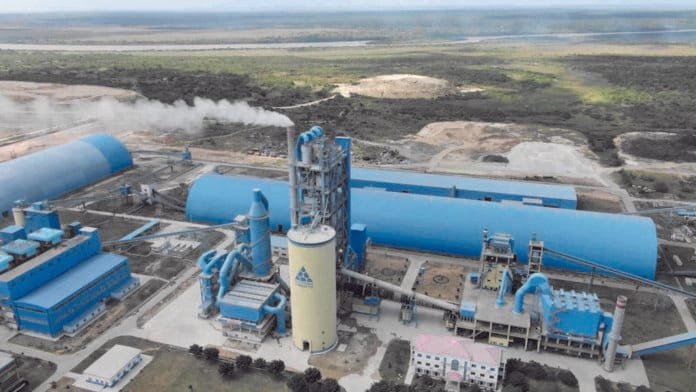Mozambique Dugongo Cimentos stated that an arbitrary reduction in cement prices could affect normal production and supply in the market, emphasizing that the cost of cement is influenced by multiple factors, which cannot be explained or determined by a single figure.
Located in Matutuine, Maputo province, the company made this clarification through a statement in response to protests occurring in various parts of the country, demanding that a bag of cement be sold for less than 300 meticais, given that the same product is cheaper in South Africa than in the domestic market.
In a note quoted by Carta de Moçambique, Dugongo Cimentos’ management explained that “cement production is a complex industrial process with cost components such as limestone, diesel, coal, equipment, and imported raw materials.”
“To illustrate, the cost of coal rose from 3,840 meticais per ton in 2021 to 6,450 meticais per ton, and the price of diesel increased from 47 meticais per liter in 2021 to 91 meticais per liter,” the company detailed.
Furthermore, the company clarified that the export price to South Africa is below the production cost, not to make a profit, “but to obtain foreign currency needed to pay for fuel and imported raw materials.”
“Resources such as coal in Mozambique are mainly concentrated in Tete province, and due to insufficient infrastructure and long distances, the transportation cost to Maputo is higher than importing from South Africa. Therefore, we need to rely on limited exports to obtain foreign currency and maintain production,” the company explained.
Dugongo Cimentos also clarified that “in the South African market, the price of cement is not lower than that of local manufacturers, strictly following the market laws of that country to avoid disrupting competition.”
“In southern Mozambique, the price generally revolves around 420 meticais, while in some northern regions it can reach up to 620 meticais. This difference is due to transportation costs. Prices are not always unilaterally determined by companies but are influenced by market and logistics conditions,” added the company, owned by the business groups SPI (Mozambican) and West China Cement Limited (Chinese).




